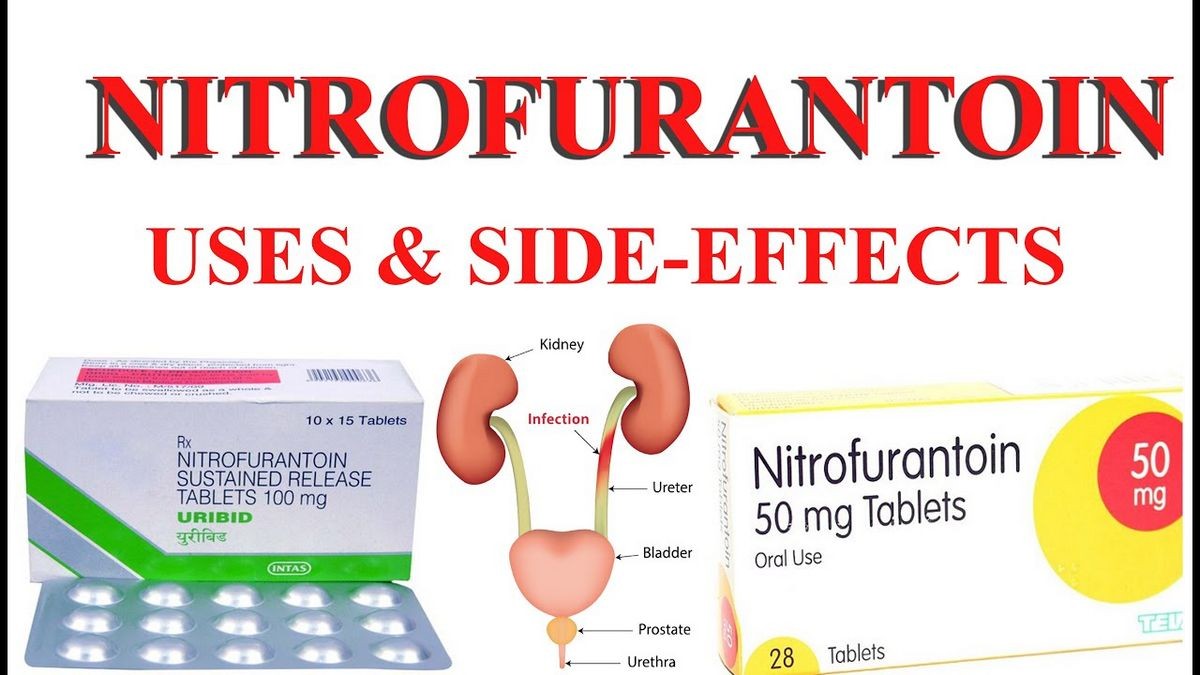
nitrofurantoin – oral, Macrodantin
This medication is used to treat or prevent certain urinary tract infections. It works by stopping the growth of bacteria. It will not work for viral infections (e.g., common cold, flu). Unnecessary use or overuse of any antibiotic can lead to decreased effectiveness. Nitrofurantoin should not be used in children less than one month of age due to the risk of hemolytic anemia.
Take this medication by mouth, with food or milk, as directed by your doctor. It is usually taken four times daily to treat an infection or once daily at bedtime to prevent infections. Swallow the medication whole. Avoid using magnesium trisilicate-containing antacids while taking this medication, as they prevent its full absorption. Dosage and duration are based on your medical condition and response to therapy. For children, the dosage is also based on body weight. Antibiotics work best when the amount in your body is constant, so take this medication at evenly spaced intervals.
When taking this medication to prevent infection, take it exactly as directed. Do not skip doses or stop taking it without your doctor’s approval. Inform your doctor if you notice signs of a new urinary tract infection, such as pain while urinating. If you are taking this medication to treat an infection, continue until the full-prescribed amount is finished, even if symptoms disappear. Stopping the medication too early may result in a relapse. Inform your doctor if your condition persists or worsens.
Nausea, vomiting, loss of appetite, and headache may occur. Take this medication with food to minimize nausea. Dark yellow or brown urine is a common side effect that disappears when the medication is stopped. Serious side effects, such as lung problems, liver disease, and intestinal conditions, are rare but should be reported to your doctor immediately. Prolonged use may result in oral thrush or a new vaginal yeast infection. A severe allergic reaction is unlikely but should be treated immediately. This is not a complete list of side effects, so contact your doctor if you notice anything unusual.
Before taking nitrofurantoin, inform your doctor or pharmacist if you are allergic to it or if you have any other allergies. This medication should not be used if you have certain medical conditions, so consult your doctor before use. Inform your doctor of your medical history, especially of blood disorders, kidney or liver problems, lung diseases, nerve problems, eye diseases, diabetes, mineral imbalance, or vitamin B deficiency. Older adults may be at greater risk for side effects, especially nerve, liver, or lung problems. If you are pregnant or breastfeeding, consult your doctor before using this medication.
Before using this medication, check with your doctor or pharmacist for drug interactions. Your healthcare professionals may already be aware of any possible interactions. Tell your doctor or pharmacist of all prescription and nonprescription/herbal products you use. Some antibiotics may decrease the effectiveness of hormonal birth control, so consult your doctor or pharmacist to ensure additional birth control methods are used. This drug can affect certain urine glucose tests. Do not share this medication with others, and discard any expired or unused product.
If overdose is suspected, contact a poison control center or emergency room immediately. Notes: Do not share this medication. Laboratory and/or medical tests should be performed periodically. Missed dose: If you miss a dose, take it as soon as you remember. Storage: Store at room temperature, away from light and moisture. Dispose of properly.
Report Problems to the FDA
Report negative side effects to the FDA. Visit the FDA MedWatch website or call 1-800-FDA-1088.
This information is intended to supplement the expertise and judgment of healthcare professionals. It is not intended to cover all possible uses, directions, precautions, drug interactions, or adverse effects. A healthcare professional should be consulted before taking any drug or changing any course of treatment.


